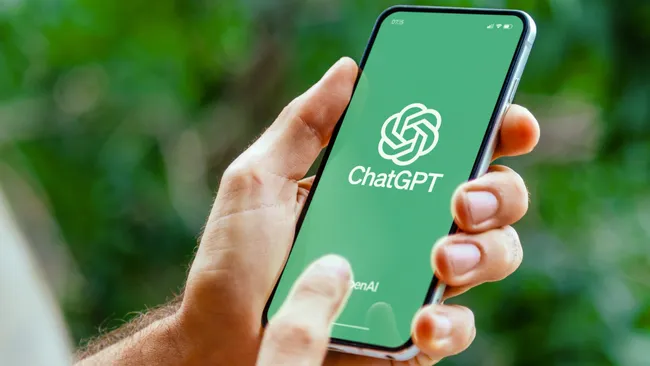The “12 Days of OpenAI” has provided us with various fresh ChatGPT improvements, but today’s announcement seemed like a completely different present. OpenAI has launched a new feature that allows users to Text or Call ChatGPT via phone.
U.S. consumers can engage in audio chats with the AI by phoning 1-800-CHATGPT (1-800-242-8478), which provides up to 15 minutes of free access per month. Additionally, global users can communicate with ChatGPT using WhatsApp.
The team demonstrated that 1-800-CHATGPT works on any phone and even hauled out an antique rotary phone to prove it. But, if you’re wondering why you might need to call ChatGPT, as I was, the company provided a demo that explained the rationale. Perhaps you’re driving past a monument you don’t know, or you need to translate from Spanish to English but don’t have an interpreter. You can now pick up the phone and ask the chatbot questions.
But, more importantly, the addition of phone-based access to ChatGPT represents a trend toward more user-friendly AI interactions, catering to people who prefer traditional communication methods over web-based platforms. OpenAI ensures that everyone, from grandparents to disabled users, has access to OpenAI. This initiative is expected to increase user engagement and expand the demographic reach of AI technologies.
By providing different modes of contact, such as phone calls, text messages, and interfaces with current platforms, OpenAI positions ChatGPT as a versatile tool for everyday use. For example, Apple has included ChatGPT into its smartphones with the most recent iOS release, allowing Siri to use the chatbot’s skills for user questions on photographs, documents, and creating written material.
Looking ahead
This initiative is part of OpenAI’s effort to make AI more approachable by incorporating it into familiar communication channels. The phone service uses OpenAI’s Realtime API, whilst the WhatsApp feature uses GPT-4o mini via the WhatsApp API. Members of the OpenAI team claimed that calls to 1-800-CHATGPT will not be utilized to train huge language models, hence addressing privacy concerns.
As AI grows and evolves, initiatives like OpenAI’s are critical in bridging the gap between advanced technology and regular users, ensuring that the benefits of AI are broadly available and easily integrated into daily life. There are only two days left in the ’12 Days of OpenAI’, so it will be great to see what else the team has in store for us.



